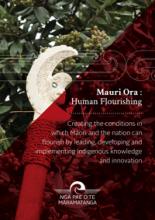In addition to public and scholarly deliberations regarding increased inequalities in society, this project responds to the continued socio-economic exclusion of many Māori households. We draw on recent scholarship on the precariat as an emerging social class comprised of people experiencing unstable employment, unliveable incomes, inadequate state supports, marginalisation and stigma. Our focus is on the Māori precariat, whose rights are being eroded through punitive labour and welfare reforms. While we document issues of employment, food, housing and cultural insecurities shaping precarious lives, we also develop a focus on household connections, practices and strengths. This focus is important because connections, practices and strengths can buffer whānau against adversity for a time, render aspects of their lives more liveable, and enable human flourishing.
This project is comprised of three key elements designed to:
- Produce a demographic silhouette of Māori precariat households, and their composition and dispersal
- Foster collaboration and mutual learning with our community partner Waikato Women’s Refuge (Te Whakaruruhau Inc)
- Engage eight Māori precariat households using participative qualitative methods that enable the co-construction of insights into their everyday lives, insecurities and opportunities for human flourishing.
We will work with Waikato Women’s Refuge to explore how insights from this research can promote the human flourishing of whānau facing adversity by enhancing connections, practices and strengths.
The project addresses a number of interrelated questions.
- What do available statistics tell us about the composition, connections, challenges and resources of Māori precariat households?
- What does socio-economic marginalisation look like in the everyday lives of Māori precariat households?
- What are the everyday restraints on human flourishing faced by these households?
- How do households deploy cultural connections and practices to cope and push against the boundaries of their socio-economically restrained lifeworlds in ways that promote human flourishing?
- What are the practical implications of a deeper understanding of precariousness for the promotion of human flourishing by community service providers?
